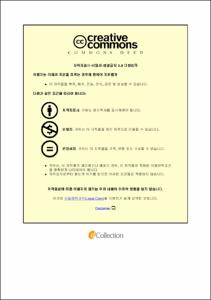포스트 코로나 시대의 중소기업 산업정보 유출 방지를 위한 방안 연구
- Abstract
- 최근 코로나19 영향으로 온라인 경제화가 가속화되면서, 기업들의 정보보안
위험은 더욱 증대하였고, 특히, 중소기업은 전문인력 부족과 예산 부족으로
2021년 7월 기준 랜섬웨어에 따른 전체 피해 건수인 97건 중 81%가 중소기업
임이 규명되어 정보보호의 사각지대에 노출되고 있다. 차후 포스트 코로나 시대
에 비대면 강화에 따른 온라인 기술의 고도화에 있어 혁신기술 창출이 관건이
며, 혁신적이고 기업가 정신에 기반한 중소벤처기업 등의 기술성과 중심으로 대
전환이 예상되는바, 본 연구는 포스트 코로나 시대 중소기업 정보보안 개선방안
을 문헌 고찰과 실증연구를 병행하여 제시하였고, 연구 결과에 따른 정책적, 실
무적 시사점을 함께 제시하여 정부와 중소기업 간 상호 협력적 방안을 최종 도
출하고자 했다.
이러한 연구목적을 위해 본 연구는 1차적으로 문헌고찰을 하여 국내의 중소기
업의 정보보안 현황을 분석하고, 2차적으로 전국 중소기업 구성원 200명을 대상
으로 온라인상에서 정보보안 실태에 관한 설문을 진행하여 국내 중소기업 정보
보완 실태를 규명한 뒤, 해외사례, 국내 실태를 비교, 분석하여 공통점과 차이점
을 규명함으로써, 국내 사정에 맞춤화된 차후 포스트 코로나 시대 대비 중소기
업 정보보안 방향성을 정립하였다. 또한 미국 산업보안의 사례를 바탕으로 제한
적인 국내 산업보안에 대해 분석해 보았다.
연구결과, 차후 포스트 코로나 시대 디지털 가속화에 따라 산업보안 피해는 더
욱 증가할 것을 예상할 수 있다. 비대면이 더욱 강화되는 이 시대에 있어서 팬
데믹과 산업 디지털에 따른 변화 정도에 있어서 복합적이고 고도화된 사이버
공격 증가를 가장 많이 예상한 것이 이를 증명하고 있다. 또한, 차후 산업보안
사고가 발생하면 중소기업 경쟁력과 매출에 큰 영향을 미침을 알 수 있는데, 산
업보안 사고 발생 시 기업 경쟁력과 매출에 미치는 영향 인식 결과는 평균 4.29
점으로 매우 높음이 확인되었다. 또한, 이러한 보안인식은 직책이 높을수록 그
중요성과 심각성을 더 강하게 인식함을 확인했고, 이러한 높은 인식에도 불구하
고, 기업에서 평소 산업보안 관련 지침을 실천하는 정도의 경우, 안내가 있어야
수동적으로 실천하는 경우가 약 80% 가까이 되어, 현재 능동적, 자발적으로 산
업보안 규정 준수를 이행하지 못하고 있음을 확인하여 이를 개선할 관리적, 기
술적, 물리적, 인적 관리 차원의 개선방안을 각각 제시했다.
본 연구는 기존 연구가 중소기업 산업보안 현황, 실태에만 주력하여 적절한 대
안을 제시하지 못하는 한계에 따른 실무적 전략을 제시함에 의의가 있고, 각 차
원 개선방안을 상호유기적으로 제시하여 더욱 실효성 있는 경영전략을 위한 유
용한 자료가 될 것으로 기대한다.| As the online economy accelerates due to the recent COVID-19 impact,
the information security risks of companies have increased even more. In
particular, 81% of the 97 cases of ransomware damage as of July 2021 due
to lack of professional manpower and insufficient budget has been identified
as a small and medium-sized enterprise, and is exposed to a blind spot in
information protection.
In the future post-corona era, the creation of innovative technology is the
key to the advancement of online technology due to the reinforcement of
non-face-to-face, and a major shift is expected to be focused on the
technological achievements of small and medium-sized venture companies
based on innovative and entrepreneurial spirit.
In this study, literature review and empirical research were conducted to
suggest ways to improve information security of small and medium-sized
enterprise in the post-corona era and by presenting both policy and practical
implications according to the research results, it was attempted to finally
derive a plan for mutual cooperation between the government and small and
medium-sized enterprises.
For this research purpose, this study primarily analyzes the information
security status of domestic SMEs by reviewing the literature,
Second, by conducting an online survey on information security status for
200 members of SMEs across the country to find out the status of
information supplementation for domestic SMEs, by comparing and analyzing
overseas cases and domestic conditions to identify commonalities and
differences, We have established the direction of information security for
small and medium-sized enterprises (SMEs) in preparation for the
post-corona era tailored to the circumstances.
In addition, based on the case of US industrial security, we analyzed the
limited domestic industrial security.
As a result of the study, it can be expected that industrial security damage
will further increase in the future as digital acceleration in the post-corona
era. In this era where non-face-to-face is getting more prevalent the
increase in complex and sophisticated cyber attacks in terms of the degree
of change due to the pandemic and industrial digital is proving this.
In addition, it can be seen that if an industrial security incident occurs in
the future, it has a great effect on the competitiveness and sales of SMEs.
The result of recognition of the impact on corporate competitiveness and
sales in the event of an industrial security incident was confirmed to be
very high with an average of 4.29 points.
In addition, it was confirmed that the higher the position, the stronger the
recognition of the importance and severity of this security awareness, and
despite this high awareness, in the case of the extent to which companies
usually practice industrial security-related guidelines.. In about 80% of cases,
it was confirmed that they must be guided and were not actively and
voluntarily complying with industrial security regulations.
Management, technical, physical, and manpower-level improvement measures
to improve this issue were presented respectively.
This study is meaningful in presenting practical strategies according to the
limitations of existing studies that cannot present appropriate alternatives by
focusing only on the status and actual conditions of industrial security for
SMEs.
It is expected that it will be a useful material for more effective
management strategies by presenting improvement plans in each dimension
organically.
- Issued Date
- 2022
- Awarded Date
- 2022-02
- Type
- dissertation
- Alternative Author(s)
- Song, Jae Hyeok
- Affiliation
- 울산대학교
- Department
- 경영대학원 경영학전공
- Advisor
- 박주식
- Degree
- Master
- Publisher
- 울산대학교 경영대학원 경영학전공
- Language
- kor
- Rights
- 울산대학교 논문은 저작권에 의해 보호 받습니다.
- Appears in Collections:
- Business > Business Administration
- 파일 목록
-
-
Download
 200000595025.pdf
기타 데이터 / 1.13 MB / Adobe PDF
200000595025.pdf
기타 데이터 / 1.13 MB / Adobe PDF
-
Items in Repository are protected by copyright, with all rights reserved, unless otherwise indicated.